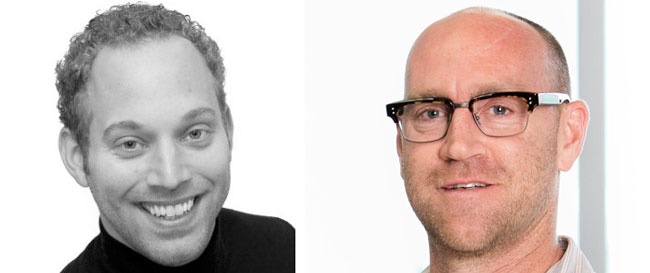At PHD New Zealand’s client event earlier this week, renowned academic and technologist Dr Nico Neumann called for a reality check on artificial intelligence, encouraging marketers, businesses and consumers to “go beyond the hype of AI” and its impact on the future.
Neumann, an assistant professor at Melbourne Business School and expert in analytics, marketing automation and technology management, said: “It’s important to understand what artificial intelligence refers to, what algorithms can do currently, and what we will realistically be able to do in the future, rather than relying on the often limited or sensationalised view presented in the media.”
Citing Roger Schank, former Yale/Northwestern professor of artificial intelligence, Neumann told audiences: “Replace the words ‘artificial intelligence’ with ‘computer programme’ and see if it still seems as exciting or revolutionary in some of the headlines.
“Many innovations that are touted as ‘artificial intelligence’ are in fact examples of advances in computational statistics, although there have been some large advances in output with the rise of bigger data sources and increased computing power,” he said.
“Although there is much propaganda around new robot developments and machine-learning applications, we often forget the long road from a successful prototype to industrial, large-scale applications. Legacy systems, social backlash and legal challenges (who is responsible when autonomous actions hurt humans?) hinder quick implementations or even successful launches, as we have learned from the extremely slow rollout of self-driving trains which have been around for many years but are hardly in mass use.”
Overall, Neumann claimed that automation of most human tasks is a lot more in its infancy than we are led to believe, and that 95% of jobs will not be replaced by machines any time soon.
Even repetitive jobs that could be easily automated but require interactions with other people are often not carried out by robots as they lack emotional intelligence, a key component of great customer service.
“You’ll know when machines have developed true AI, when instead of going to work, they go to the beach instead.”
“There is a lot of confusion and misunderstanding around exactly what algorithmic decision systems can and cannot do, as well as the critical contributions,” Neumann said.
“Fine-tuning and training many data scientists is needed to optimise solutions in the background. Computers can count really fast, but they cannot solve problems by themselves. We still need to tell them what to do.”
PHD NZ group strategy director Simon Bird said: “Obviously, there are some amazing things that new technology is doing, like real-time language translation and the diagnosing of cancer.
“However, as amazing as these tasks are, machines are still a long way off from displaying anything like the sophistication or intelligence of the human brain and its ability to learn in unstructured ways. Chatbots, for all their technological brilliance, still really struggle when we ask something off-script, even though to us it seems a straightforward question.
“I rather like the quote on AI from a US software designer: You’ll know when machines have developed true AI, when instead of going to work, they go to the beach instead.”
PHD launched its seventh publication Merge last year that draws on insights, foresights and research from inventors, futurists and technologists to understand how technology and humanity will fuse together, both symbolically and literally.
- For more information on PHD’s Merge – The closing gap between technology and us or to purchase the book, visit www.phdmedia.com/merge
About PHD
PHD is known globally as an innovator in communications planning and buying across broadcast, print, digital, mobile, social and emerging media. The network places in the Gunn Report’s top 3 most awarded networks in the world for its work, while PHD New Zealand was named Media Agency of the Year at the Spikes Asia Festival of Creativity in 2017.
PHD has over 4000 staff working in over 80 offices worldwide, having been founded in London in 1990 as the first planning-led media agency. Built on a culture of thought leadership, innovation and creativity, with a philosophy of “Finding a Better Way”, PHD is today one of the world’s fastest growing media and communication agency networks, placing 1st in RECMA’s 2016 global new business performance league table.
The PHD network is part of the Omnicom Media Group, the media services division of Omnicom Group Inc. (NYSE: OMC).
Share this Post



